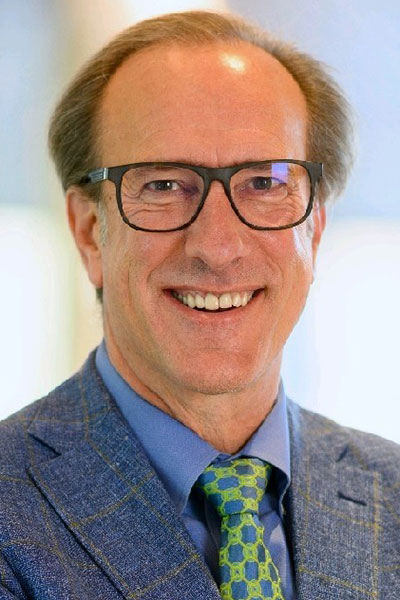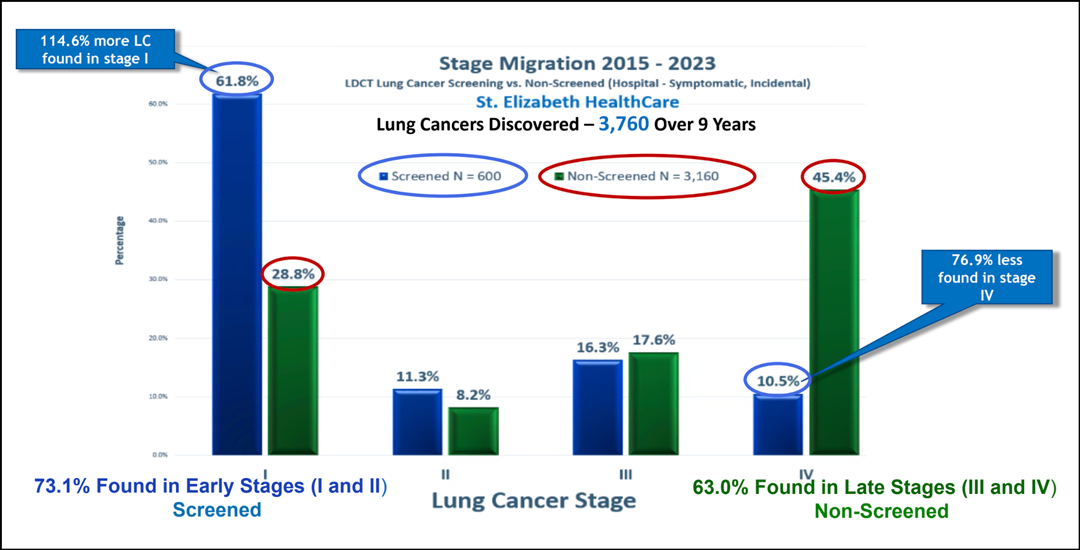During a session exploring Real-world Implementation of Early Lung Cancer Detection at the 2024 World Conference on Lung Cancer, Mike Gieske, MD, showed just how dramatically lung cancer screening can change the distribution of lung cancer stages if implemented effectively.

Dr. Gieske leads the lung cancer screening program at St. Elizabeth Healthcare, which serves Northern Kentucky and Southeast Indiana. In just 11 years, the program has expanded from seven screenings per year to nearly 10,000 screenings in 2024, totaling more than 45,000 screenings overall.
While the increase in the number of screenings is impressive, Dr. Gieske said the results demonstrate why screening programs are important.
“We’ve now found more than 440 stage I lung cancers,” he said. “These are lives saved. If you look at both stage I and stage II, 73% of the cancers found are in the early stages, and that continues to get better year after year.”
Indeed, in 2023, the program detected 141 cases of lung cancer; 72% were in stage 1, and 81% were either stage I or stage II. Through September 2024, 75% of the cancers detected were stage I.
Dr. Gieske showed how this has resulted in a stage migration or shift. A comparison between patients diagnosed through St. Elizabeth’s screening program and those diagnosed incidentally or after developing symptoms reveals a significant difference in the stage at diagnosis.
More than 45% of patients who were not screened were diagnosed with stage IV lung cancer, compared to only 10.5% of screened patients. Conversely, nearly 62% of screened patients were diagnosed with stage I lung cancer, while only 29% of non-screened patients received this diagnosis (see Fig. 1).
“During the past 6 to 7 years, we’ve had a 19% decrease in late-stage lung cancers,” he said. “Our late-stage lung cancers have continued to go down. Our early-stage lung cancers continue to increase. In 2022, those lines crossed, and we’re now seeing more early-stage than late-stage lung cancers within our healthcare system (see Fig. 2). That’s what it’s all about.”
Dr. Gieske said this is all attributable to the lung cancer screening program and a robust incidental pulmonary nodule program working in tandem.
“We consider lung cancer screening a team sport,” he said. “We’ve been fortunate in our healthcare system to assemble a group of passionate, energetic individuals who work well together.”
Indeed, Dr. Gieske says the screening program’s multidisciplinary nodule review board has been key to securing support from ordering providers, especially primary care physicians.
He said the board reviews about 45 nodules first thing every Friday morning. The team consists of Dr. Gieske, a primary care physician, along with three full-time nurse navigators, a pulmonologist, a radiologist, and a thoracic surgeon.







